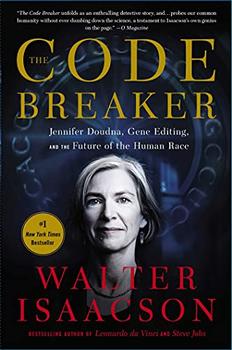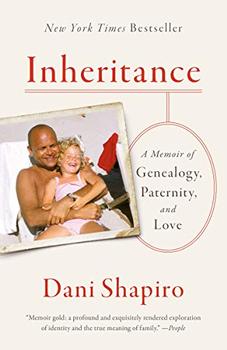Summary | Excerpt | Reviews | Beyond the book | Read-Alikes | Genres & Themes | Author Bio

How DNA Testing Is Upending Who We Are
by Libby CopelandWhen Alice Collins Plebuch ordered a DNA testing kit in 2012, it was just for fun. Raised in a large Catholic family with a strong sense of Irish heritage, she thought she already knew what to expect. When her results came in, however, Alice was thrown for a loop. Instead of the 100 percent British Isles ancestry she had expected, the test results identified half of her genetic makeup as European Jewish, Middle Eastern and Eastern European. What was supposed to be a way to indulge an amateur interest in science and genealogy turned into an inscrutable mystery that took years to unravel and upended some of her most deeply held beliefs about herself.
In The Lost Family, journalist and freelance writer Libby Copeland follows Alice on her quest to untangle the truth behind her unexpected DNA results, using the California grandmother's story—a riveting genetic whodunit filled with wild twists of fate—as a springboard for discussing the science of DNA testing and its broader personal, social and ethical implications.
Since the first consumer DNA kits became available in the early 2000s, interest in genetic testing has soared in the US, thanks in large part to aggressive marketing campaigns. And as more and more Americans jump on the genetic genealogy bandwagon—almost 30 million as of the beginning of 2019—it is becoming clear, as Copeland writes, that "we are embarking on a vast social experiment, the full implications of which we can't yet know."
Genetic tests can offer insight into a person's ancestry, provide information about their risk factors for certain inherited diseases, uncover lost relatives, reunite families and bring a sense of clarity to those seeking answers about their origins. Yet sometimes the results of DNA tests can be inaccurate or misleading, raising more questions than they answer. Other times, they can expose difficult family secrets and painful revelations from the past. In the process, they force us to grapple with thorny questions about family and identity, privacy and consent.
What happens when the results of a DNA test overturn our long-held assumptions about our identity and our place in the world—as they did in Alice's case? How much power do our genes have to shape who we are? And as the genetic databases of ancestry companies grow larger and larger, what unforeseen implications might this have for our private lives? Given that DNA is shared among family members, it is often possible to connect the dots to a person who has never taken a DNA test by tracking down a sibling, cousin or other relative who has. "When one person spits into a vial or swabs her cheek, her whole family is implicated," as Copeland puts it. What, then, happens to the right of a sperm donor to remain anonymous or the presumption of confidentiality in a closed adoption case?
Well-researched and thoroughly enjoyable to read, The Lost Family is a fascinating look at these and other issues surrounding the rise of commercial DNA testing. With clear and accessible explanations of the relevant science, Copeland describes the basics of gene sequencing and delves into topics including, among others, the business practices of industry behemoths such as Ancestry and 23andMe, the pitfalls of relying on commercial DNA tests for medical information and the hazards of buying into an oversimplified genetic essentialism that treats genes as destiny.
While Alice's search for her roots provides the central narrative thread of the book, Copeland also weaves in the stories of many other people whose lives have been transformed, for good or for ill, by DNA testing—adoptees searching for their biological parents, donor-conceived children who find out that they have dozens of siblings, grown adults faced with the sudden revelation that they are not biologically related to the father who raised them.
Occasionally, it can feel disruptive when Copeland uses one of these personal stories as a hook and then cuts away to a broader discussion of the general issues at stake before returning to provide closure. This does not detract from the overall readability of the book, however. Indeed, if anything, it shows how successful she is at engaging readers and making us feel invested in the lives she chronicles.
![]() This review was originally published in The BookBrowse Review in May 2020, and has been updated for the
April 2021 edition.
Click here to go to this issue.
This review was originally published in The BookBrowse Review in May 2020, and has been updated for the
April 2021 edition.
Click here to go to this issue.

If you liked The Lost Family, try these:

by Walter Isaacson
Published 2022
Winner of the 2021 BookBrowse Nonfiction Award
The bestselling author of Leonardo da Vinci and Steve Jobs returns with a gripping account of how Nobel Prize winner Jennifer Doudna and her colleagues launched a revolution that will allow us to cure diseases, fend off viruses, and have healthier babies.

by Dani Shapiro
Published 2020
A new memoir about identity, paternity, and family secrets--a real-time exploration of the staggering discovery Shapiro recently made about her father, and her struggle to piece together the hidden story of her own life.
Your guide toexceptional books
BookBrowse seeks out and recommends the best in contemporary fiction and nonfiction—books that not only engage and entertain but also deepen our understanding of ourselves and the world around us.